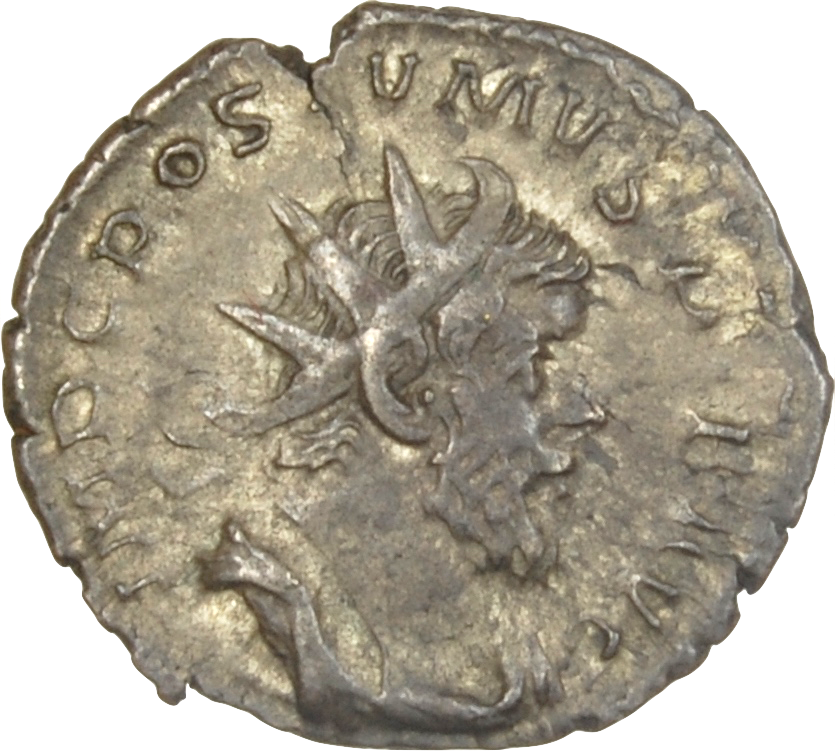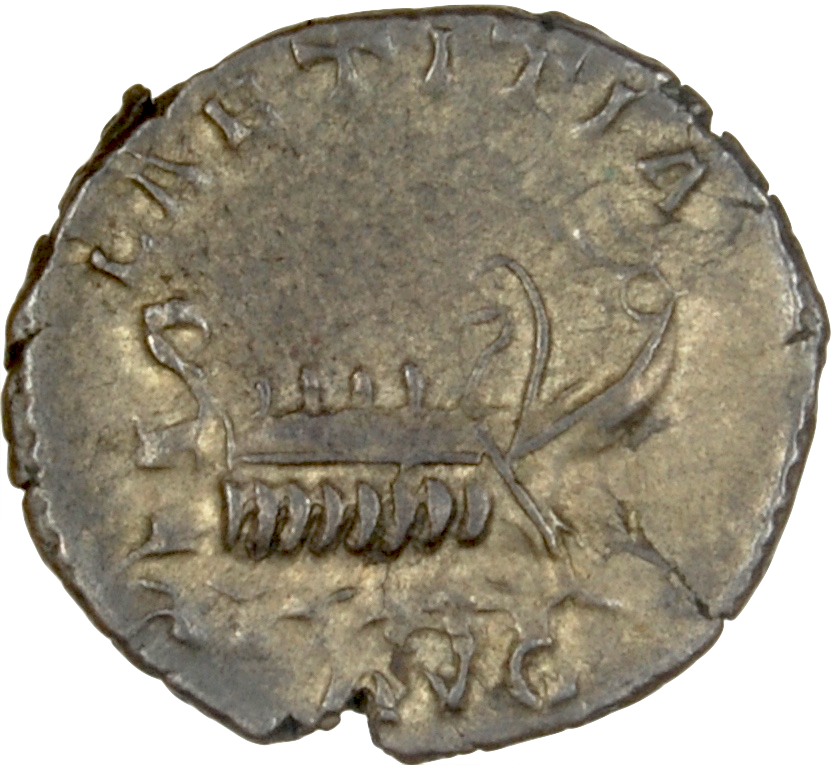mgcoins database 
Cologne AD 260-265 AR antoninianus 2.98 g 1.97 cm 1.99 cm 5h
obverse: hd Postumus r radiate, draped and cuirassed IMP C POSTVMVS P F AVG
reverse: galley l with rowers and steersman LAETITIA AVG
RCV III 10958, RIC 73, RSC IV 167
Schulman Auction 282 lot 2925 (3/12) Nov 1985
Gallic-Empire
Marcus Cassianus Latinius Postumus born between 215 and 225? (Germania Inferior or Gallia Belgica), 260-269 Mogantiacum = Mainz)
269 Ulpius Cornelius Laelianus seized power in Mainz against Postumus
After several months again conquered by Postumus
Postumus refused his troops to pillage the captured city, which led to his own assassination.
According to RSC IV 167: minted in Lyon
Refers to the importance of the naval power in the Gallic Empire
and perhaps to an visit of Postumus to Britain in the early years of his reign.
Laetitia is the Roman Goddess of joy, gaiety, and celebration, and is especially linked with holidays and festivals.
Laetitia was given several epithets depending on the type of joy the Emperor was attempting to take credit for bringing to the Empire.
On coins of the Emperors Gordian III and Gallienus, who both reigned in the mid 3rd century CE, She is Laetitia Augusta, "the Joy of the Emperor", which,
in propaganda-style, can be taken to mean "the joy the Emperor brings to the people",
though it may also have been a way of announcing the birth of a child into the imperial family.
On these She is shown standing in Her typical pose, with a garland in one hand and an anchor supporting the other;
other coins labelled Laetitia Augusta depict a ship with the Emperor himself steering it, reinforcing the idea of the Emperor as the one who brings happiness to the people of the Empire,
though it likely also refers to the idea of prosperity through naval conquest and the control of the resources of the conquered (See www.thaliatook.com).
|
|